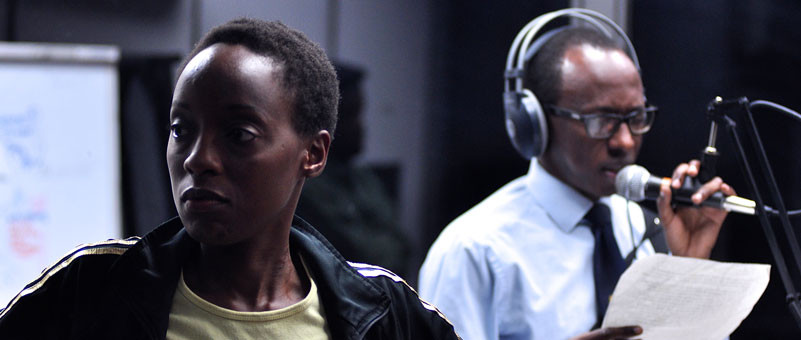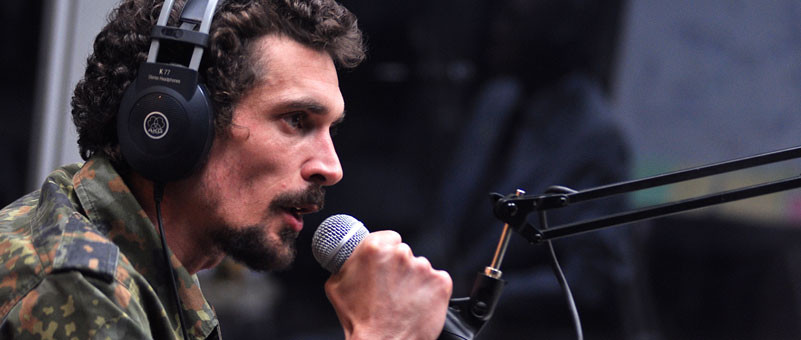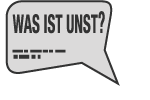Hate Radio
Performance, Exposition, Movie and Book
On 6 April 1994, the airplane of the Rwandan President, Habyaruman, was hit by two missiles as it tried to land. This event signaled the beginning of the most brutal genocide since the end of the Cold War. In the months of April, May and June 1994, the Central African state murdered an estimated 800,000 to 1,000,000 of its Tutsi minority and thousands of moderate Hutus. The tools used to humiliate and kill people of all ages and genders were simple: machetes, sticks, and a few guns. Indeed, the most powerful instrument of the genocide was the “Radio- Télévision Libre des Mille Col- lines” (RTLM).
If someone were looking for simple and effective means to prevent the genocide in Rwanda, wrote the US- American journalist Philip Gourevitch, the radio station RTLM would have been a good place to start. With unspeakable cynicism, the staff of the popular station had been preparing the genocide like an election campaign for months. The program consisted of pop music, riveting sports coverage, political communiqués, and remarkably hateful calls to murder. The newest Congolese music and the most aggressive racial analyses were combined into a dreary few-square-meter laboratory of racist ideology.
The project “HATE RADIO” returns RTLM to the airways in a reconstructed backdrop that remains faithful to the original – survivors of the genocide are standing on stage. Central to the project is the replay of an RTLM show, run by its hosts – three Hutu extremists and the white Italian-Belgian Georges Ruggiu. How racism functions, how human beings are “talked out of” their humanity – an instillation reconstructed by the author and director Milo Rau from documents and witness statements provides the answers to these questions so that people can feel and experience these happenings for themselves.
During performances, the walls of the radio studio, which were built to match the original, turn into projection surfaces for a complex video installation with the selected stories of former perpetrators and victims. Here, the audience is confronted with the consequences of racist mind-sets. In doing so, HATE RADIO demands that audience members be observers at the centre of the inner circle, at the centre of racist thought so to speak. Simultaneously it makes them the suffering witnesses of its destructive and inextinguishable consequences.
TEXT & DIRECTION: Milo Rau
CAST (live) Afazali Dewaele, Sébastien Foucault, Diogène Ntarindwa, Bwanga Pilipili; (video) Estelle Marion, Nancy Nkusi
DRAMATURGY & CONCEPTUAL MANAGEMENT: Jens Dietrich SET & COSTUME DESIGN: Anton Lukas VIDEO: Marcel Bächtiger SOUND: Jens Baudisch ASSISTANT DIRECTOR: Mascha Euchner-Martinez PRODUCTION MANAGEMENT & DRAMATURGY: Milena Kipfmüller PUBLIC RELA- TIONS: Yven Augustin SCIENTIFIC COLLABORATION: Eva-Maria Bertschy CORPORATE DESIGN: Nina Wolters WEB DESIGN: Jonas Weissbrodt ACADEMIC COUNSELLING: Marie-Soleil Frère, Assumpta Mugiraneza & Simone Schlindwein CASTING BRUSSELS/GENEVA: Sebastiâo Tadzio CASTING KIGALI: Didacienne Nibagwire
HATE RADIO is a production by IIPM Berlin/Zürich with Migros-Kulturprozent Schweiz, Kunsthaus Bregenz, Hebbel am Ufer (HAU) Berlin, Schlachthaus Theater Bern, Beursschouwburg Brüssel, migros museum für gegenwartskunst Zürich, Kaserne Basel, Südpol Luzern, Verbrecher Verlag Berlin, Kigali Genocide Memorial Centre and Ishyo Arts Centre Kigali.
Supported by von Hauptstadtkulturfonds (HKF), Migros-Kulturprozent Schweiz, Pro Helvetia – Schweizer Kultur- stiftung, Kulturelles.bl (Basel), Bildungs- und Kulturdepartement des Kantons Luzern, Amt für Kultur St. Gallen, Ernst Göhner Stiftung, Stanley Thomas Johnson Stiftung, Alfred Toepfer Stiftung F. V. S., GGG Basel, Goethe- Institut Brüssel, Goethe-Institut Johannesburg, Brussels Airlines, Spacial Solutions, Commission Nationale de Lutte contre le Génocide (CNLG), Deutscher Entwicklungsdienst (DED), Contact FM Kigali, IBUKA Rwanda (Dachorganisation der Opferverbände des Genozids in Ruanda) and the Hochschule der Künste Bern (HKB), Friede Springer Stiftung.







